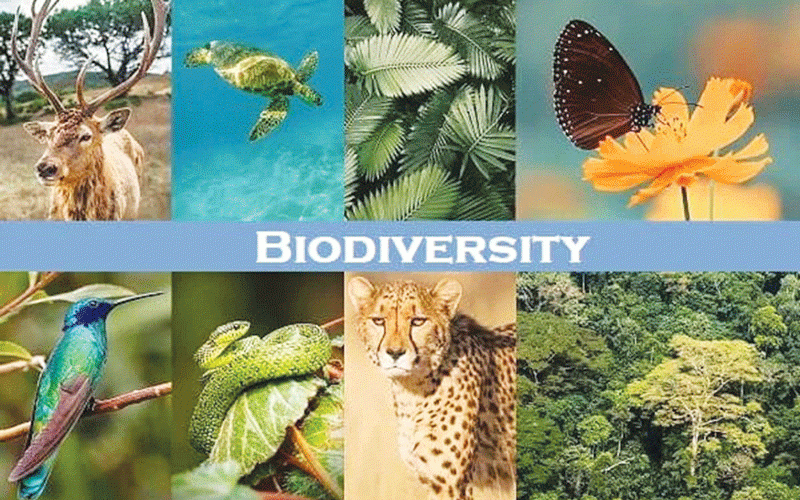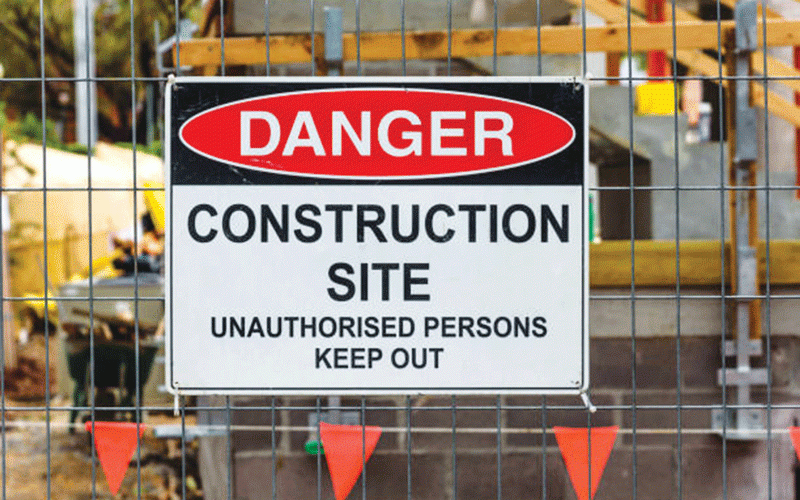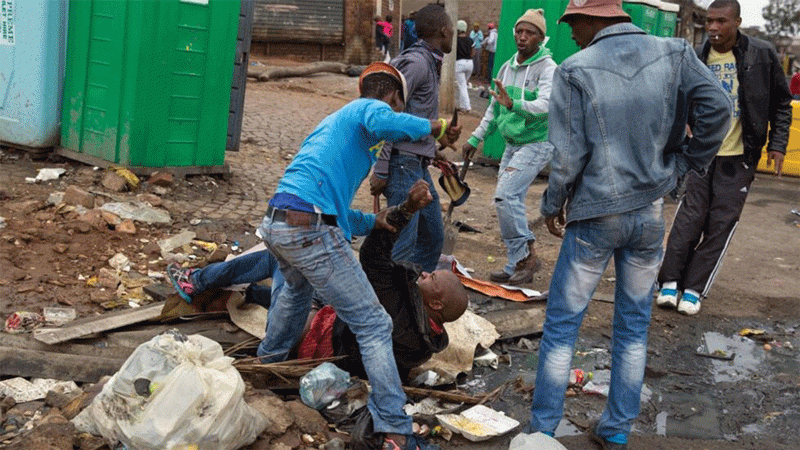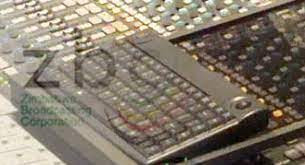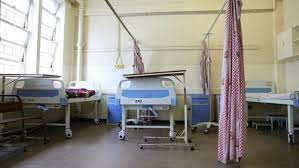
THE Zimbabwe Lawyers for Human Rights (ZLHR) is greatly saddened by the passing of the Criminal Law (Codification and Reform) Amendment Bill HB 15, 2022 (introducing so-called patriotism provisions) in the National Assembly on May 31, 2023.
It now awaits to be debated by the Senate.
The Bill was gazetted on December 23, 2022 to criminalise citizens and residents of Zimbabwe who, by recourse to foreign countries, seek to implement measures that undermine Zimbabwe’s sovereignty, dignity and independence as a nation.
The Bill lists offences such as “wilfully injuring the sovereignty and national interest of Zimbabwe” for active participation by Zimbabweans in meetings inside and outside Zimbabwe on issues of military intervention, subverting/upsetting/overthrowing or overturning the constitutional government, or on economic sanctions and trade boycotts.
Following a critical analysis of these provisions, ZLHR concluded that the provisions are vague, lack certainty, are imprecise, and are thus prone to abuse by law enforcement agencies.
The Bill does not define “sovereignty” and “national interest”, which could be interpreted broadly and subjectively to criminalise the legitimate conduct of those asserting their freedom of expression.
ZLHR is gravely concerned that the Bill penalises citizens and residents for merely attending a meeting where sanctions are discussed, whether the sanctions target an individual or official or class of individuals.
The vague criminalisation of meetings between Zimbabwean citizens and foreign governments violates the freedoms of assembly, association and expression guaranteed in the Constitution.
- News in depth: Fears of violent 2023 polls grow as ED fails to deliver on promises
- Come back home, but we have no jobs: Mangwana
- SA must protect foreign nationals within its borders
- Malema apologises for Elvis Nyathi killing
Keep Reading
Zimbabwe has also voluntarily agreed to be bound by numerous United Nations and African Union human rights instruments providing these rights.
Once enacted into law, these patriotism provisions will have extraterritorial application and criminalise participation by Zimbabweans in meetings held in other countries.
This will have a chilling effect of silencing Zimbabwean civil society organisations’ international advocacy efforts to promote human rights protection in Zimbabwe.
The right to participation of civil society organisations at regional and international meetings is guaranteed under international law.
Of grave concern in the Bill are the excessive penalties for wilfully injuring the sovereignty and national interests of Zimbabwe, which include the death penalty, lengthy imprisonment, revocation of citizenship, prohibition from being registered as a voter or voting in an election for a period of at least five years.
ZLHR notes that some of the penalties are manifestly unconstitutional.
The death penalty can only be imposed on a person convicted of murder in aggravating circumstances, as provided for in section 48 of the Constitution.
The penalty of prohibition of registration as a voter or voting in an election violates political rights as provided for in section 67 of the Constitution as read with paragraph 2 of the Fourth Schedule to the Constitution, which provides for disqualification for registration as a voter only if a person has been convicted under the Electoral Act.
Revocation of citizenship can only be done in terms of section 39 of the Constitution, and conviction for so-called unpatriotic conduct is not a ground for revocation in terms of section 39 of the Constitution.
The proposed provisions will result in the closure of civic space and violate human rights at a time when Zimbabwe has committed to implement critical reforms under the Structured Dialogue on Arrears Clearance and Debt Resolution process.
ZLHR urgently calls upon the government to:
- Immediately withdraw the Criminal Law (Codification and Reform) Amendment Bill HB 15, 2022 from Parliament and stop pending Senate processes.
- Uphold the rule of law and protect human rights by ceasing all actions that undermine constitutional rights.
- Take heed of Resolution 62(XXXII) 02 of the African Commission on Human and Peoples’ Rights on the Adoption of the Declaration of Principles of Freedom of Expression in Africa, which compels States not to interfere with freedom of expression arbitrarily.
- Act in good faith and carefully consider the guidelines on the rights to freedom of peaceful assembly and association of the African Commission on Human and Peoples’ Rights, whose fundamental principle enjoins States to enact laws which facilitate rather than hamper the exercise of rights to freedom of association and assembly.
- Create an enabling environment for citizens and residents to exercise their constitutionally guaranteed rights without fear of reprisals or criminalisation.
- Respect the Constitution and international human rights obligations.-ZLHR
August 23: Zimbos will vote with their feet
ZIMBABWE is a rich country. It is known for its gold, diamonds, lithium, copper, you name it. It has good soils and climatic conditions to the extent that at some point it was regarded as the breadbasket of southern Africa. For some reasons, that is now a thing of the past.
The country is known for its high literacy rate, one of the best in Africa, hovering around 98%.
Zimbabweans are hardworking people — they are thriving in every part of the world. I will not mention their hospitality.
Zimbabweans are an intelligent lot, if you ask me — whatever they do not like they abhor, whatever they have dumped they will not pick again. What they dump is rubbish.
There is no better tangible proof to the afore-mentioned statement than the ubiquitous satellite dishes dotted around Zimbabwe.
The mushrooming of satellite dishes shows how people have rejected Zanu PF twaddle and soporific programming that is the stock in trade at the national broadcaster — Zimbabwe Broadcasting Corporation.
The aerial view of Harare’s Kuwadzana suburb as one goes through Harare-Bulawayo Highway is a clear testament of how people have voted with their feet. No one is interested in watching Zvavanhu and other insipid programmes which have become synonymous with Dead BC. What with the not-so telegenic faces we have come to hate on our small screens.
Without putting a point on it, we can say Zimbabwe is a country without a broadcaster. How so, one might be tempted to ask? What purpose does the national broadcaster serve when it is not watched by the citizenry, honestly?
Just like in the days of the demonetised Zimbabwean dollar (dear reader we are going back at it again) which was rejected at market stalls (kumusika) — the lowest rung of trading, the powers-that-be were left with no choice, but to have a nation without its money. Here again Zimbabweans voted with their feet!
Now that President Emmerson Mnangagwa has proclaimed August 23 at the election day, it is all systems go. Daggers have been drawn and we know what happens when Zanu PF’s throne is under threat — it resorts to violence.
Dear reader, for your own safety, if they force you to close your stall and ambush you to attend their fist-waving rallies, please attend. If they give you a dollar for attending their rallies which is likely to happen in a few days to come, please take the dollar, it is your money.
They will be dishing out money like confetti. You are getting your share of the US$15 billion diamond money that was looted by the elite a few years ago.
Gentle reader, Zimbabweans know what they want and change cannot be bought; we will vote with our pens and feet again. We will vote for Nelson Chamisa.
Let us all jettison archaic political parties with their anachronistic manifestos of war. My X will be on Chamisa and Citizens Coalition for Change, and I am not ashamed!-Mai Ruru, Buhera
Income-generating activities, skills development key in poor communities
THE World Food Programme (WFP) and its partners worked with local authorities, communities, and local government departments on seasonal livelihood programming (SLP) consultations across six urban and rural districts in April.
SLPs support tailored response plans at sub-national levels by linking the national-level context analysis with communities and partners to deliver complementary programmes.
They identify short and long-term interventions suited to specific contexts and inform the design, planning and linkages between activities. WFP has supported 15 SLP consultations since the start of the year.
Due to technical and co-ordination challenges, WFP only assisted 19 700 of 27 300 people targeted to receive cash-based assistance in urban areas (72%) in April.
Those affected will receive their entitlements a bit later. Contributions from European Civil Protection and Humanitarian Aid Operations and the United Kingdom’s Foreign, Commonwealth & Development Office have allowed WFP and partners to consistently provide support in three urban domains (Chiredzi, Mzilikazi and Mutare) since the start of the year.
Through its urban resilience programme, WFP is conducting value chain mapping and analysis in 10 urban domains.
The findings will inform the key entry points for the urban resilience programming through identification of the most viable and scalable income-generating activities and skills development requirements per domain.
Starting in May, WFP has scaled down its urban resilience-building programme in Zimbabwean cities from 13 to three domains, due to funding challenges.
Preparations have been ongoing to kick-start food assistance for assets (FFA) activities in May, across six districts.
WFP’s FFA addresses immediate needs through food distributions, while investing in productive assets that improve long-term food security and resilience, including soil and water conservation.
Participants are also trained on insurance and financial inclusion, food processing and connected to nearby markets.
The community-centred approach promotes nutrition, gender equality, and social protection.-WFP

